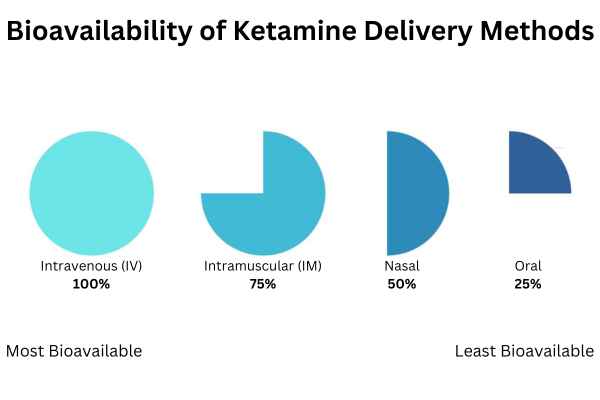Understanding Ketamine Treatment for Depression: A Promising Option
The Rise of Depression and the Search for Effective Treatments
In the past decade, there has been an alarming increase of depression rates. A report published in American Journal of Preventive Medicine in 2020 reported that about 1 in 10 adults and one in 5 adolescents in the U.S. experience depression, representing almost a doubling from 6.6% in 20051. As more people are affected by this condition, quicker and more efficient strategies are vital.
The emergence of Ketamine as a Rapid-Acting Alternative to Fluoxetine (Prozac) introduced to the market by the Food and Drug Administration (FDA) in the 1980s as a product for anesthesia, ketamine was also discovered to have speedy-acting antidepressant and anti-anxiety effects. This made it appear on the prospective market as a medicine against depression among people who had been unresponsive to conventional antidepressants.
How Does Ketamine Treatment Work Differently?
Ketamine acts on different neurotransmitters than conventional Selective Serotonin Re-uptake Inhibitors (SSRIs) to make it a viable option for people who had treatment-resistant depression. This form of depression is when there is a lack of response to conventional medications and psychotherapy.
How Klearmind Manages Ketamine Therapy
At Klearmind, a leading center for mental health innovations in the Sacramento, Roseville region, ketamine therapy is modified according to the specific needs of patients. Dr. Heyer, a Board Certified Cardiac Anesthesiologist says: “We provide personalized care to those with treatment-resistant depression.”
Ideal Candidates for Ketamine Treatment
Ketamine may be particularly beneficial for patients who:
- Have not responded to traditional antidepressant medications or psychotherapy
- Do not have complicating medical conditions such as seizures, substance abuse, or liver or kidney issues
- Are not currently on any drugs that can adversely interact with ketamine
Methods of Administering Ketamine
Ketamine can be administered through intravenous (IV) infusion, intramuscular (IM), intranasal spray, or orally.
If you are an ideal candidate and do not wish to use IV infusion, then the only FDA-approved nasal spray is esketamine. Klearmind Ketamine & IV Hydration Clinic is a REMS approved center (Spravato-nasal ketamine).
Majority of studies published were completed on intravenous infusions. This is important to keep in mind to understand where the data was derived from. As one moves away from intravenous, to intramuscular to nasal and finally oral forms of ketamine, the bioavailability on average decreases from 100% (intravenous) to 75% (intramuscular) to 50% (nasal) to finally 25% (oral). This is extremely important consider because a lower bioavailability can lead to higher dosages with higher side effects.

Potential Ketamine Side Effects
Although ketamine is an effective option for depression, some side effects can include:
- Dissociation
- Dizziness
- Temporary increase in blood pressure
- Nausea
- Vomiting
These side effects are closely monitored during treatment sessions, normally carried out over several weeks in an outpatient setting.
Conclusion
Ketamine treatment for depression represents a promising alternative for those that have not been aided by traditional treatment methods. As ketamine displays rapid-acting properties along with a different neurological approach, it provides hope for many who are experiencing severe, and treatment-resistant depression. As the research is carried out and treatment protocols move forward, ketamine could then become an increasingly acceptable solution towards the management of this crippling condition.
KlearMind Ketamine & IV Hydration Clinic – Proudly Serving the Sacramento and Roseville Region
Best Ketamine Treatment & IV Hydration Therapy Tips and Educational Resources
Learn more about ketamine assisted psychotherapy with Klearmind Ketamine & IV Hydration Clinic.
References:
- Yavi M, Lee H, Henter ID, Park LT, Zarate CA Jr. Ketamine treatment for depression: a review. Discov Ment Health. 2022;2(1):9. doi: 10.1007/s44192-022-00012-3. Epub 2022 Apr 15. PMID: 35509843; PMCID: PMC9010394. 2005.